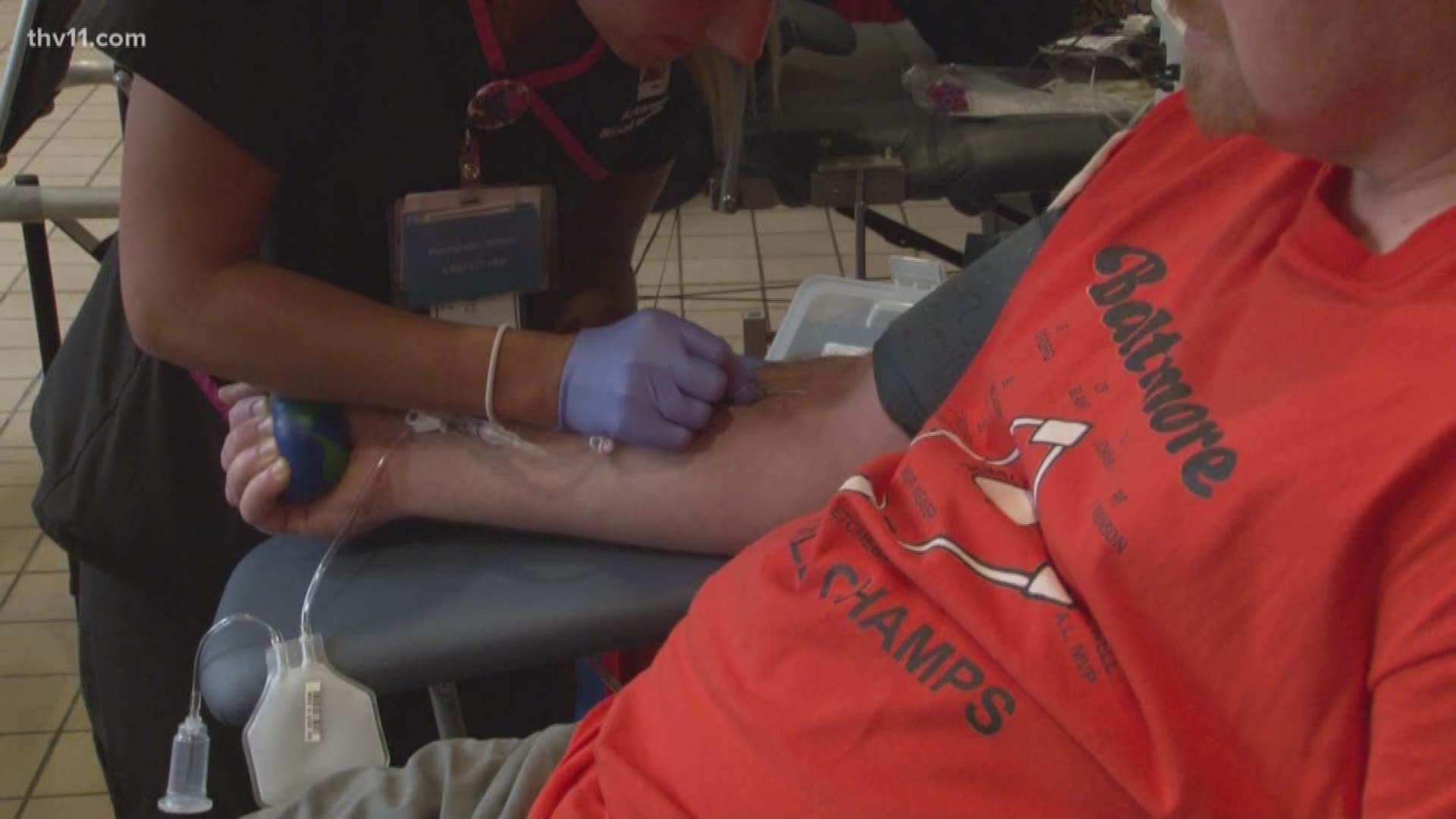As Lyme Disease Awareness month comes to a close, a Lyme Disease patient in Arkansas is raising awareness about the fact that she, and other Lyme Disease patients, can still give blood.
According to the CDC, Lyme disease is one of the fastest-growing infectious diseases in the United States. The CDC also reports that Lyme disease can live in blood that is stored for donation.
Even still, patients here in Arkansas say they can still donate blood, despite the risk of passing it to others.
Little Rock small business owner, Lindsey Mears, has Lyme disease and was startled to learn that she can still donate.
"I can donate blood,” she said, adding that the American Red Cross will accept blood, even if a patient self-identifies as having Lyme disease.
"I called them yesterday, as a matter of fact, to confirm this, and told them I had Lyme disease. I asked them if I could donate. They said 'Absolutely, you can.' I asked them if they test the blood after it has been donated, before they give it to someone else, for the Borrelia burgdorferi bacteria that is Lyme disease. They said 'Absolutely not. We do not."
Mears shared the information on Facebook and got an overwhelming response.
"Lots of people started commenting and saying, 'Oh my goodness, I donated blood before I realized I had Lyme disease. I called the American Red Cross to tell them to pull my blood from the blood bank and they refused to do so.'"
Dr. Dirk Haselow, the state's Epidemiologist said blood banks don't test patients for Lyme disease before they donate.
"It would be inappropriately costly to test everybody for Lyme disease who has given blood because the likelihood of coming across a positive sample would be very very low,” he said.
He explained that Lyme disease works a lot like strep -- you're only contagious for a short amount of time, though you may have to take medication for several days.
"The likelihood of getting Lyme disease from a blood product is very low," he said.
This isn't the first time Mears and the state have disagreed. She says she contracted Lyme disease four years ago, yet the state won't recognize her as a confirmed case.
"I think officials and people don't want to recognize it, I think for multiple reasons. One of them being scaring the public. The deal is, if we just raised awareness and made the public aware, and let them know it is here, they could protect their families,” Mears said.
Mears was officially diagnosed in Washington D.C. and has had to travel back and forth for treatment.
Dr. Haselow says the CDC identifies less than two cases of Lyme disease in Arkansas each year.
"In a state like Wisconsin, or the Northeastern part of the United States, like Connecticut, this is a potential issue and I'd assume blood banks would be testing in those areas,” Haselow said.
Mears encourages those who are concerned to contact their local state representatives and also the Red Cross.
The Arkansas Blood Institute, who handles blood collection in Central Arkansas, said this in a statement:
In terms of how the Arkansas Blood Institute manages a donor diagnosed with Lyme disease:
- Proactively: the donor is deferred for greater than or equal to 4 weeks post recovery of signs and symptoms.
- Currently there are no FDA regulation or AABB standards on the management of donors with Lyme disease. However, the 2009 AABB emerging infectious disease abstract on Lyme disease provides this statement: “Prudent practice would be to defer donor until signs and symptoms are gone and a course of treatment is completed.”
If a donor has donated blood and then discovered a risk of Lyme disease:
For more information, click here.

